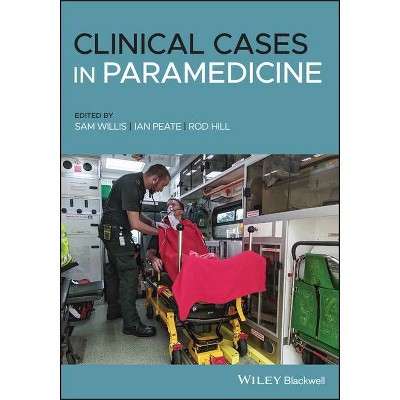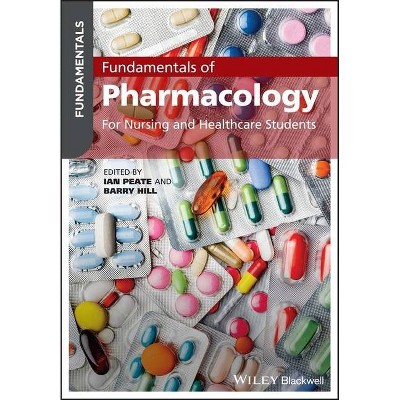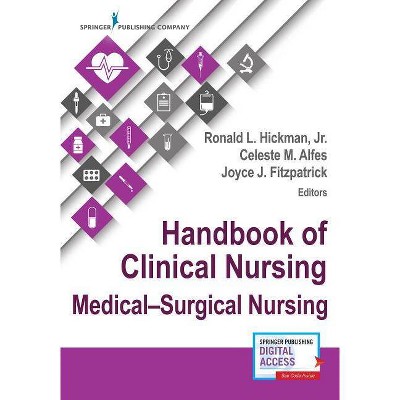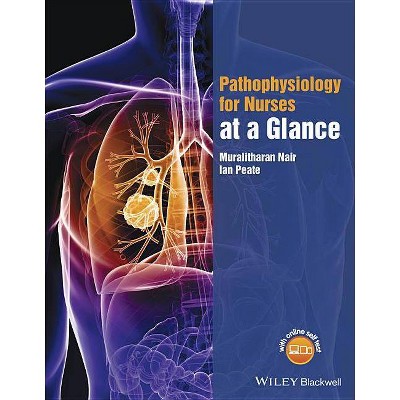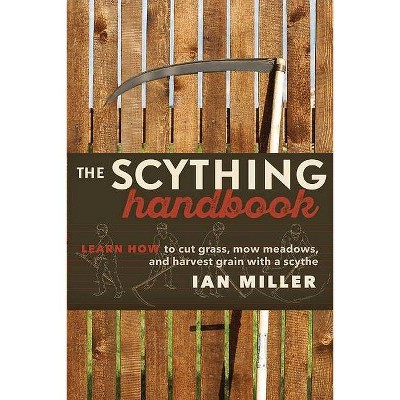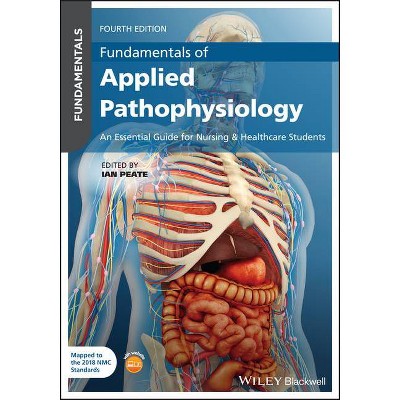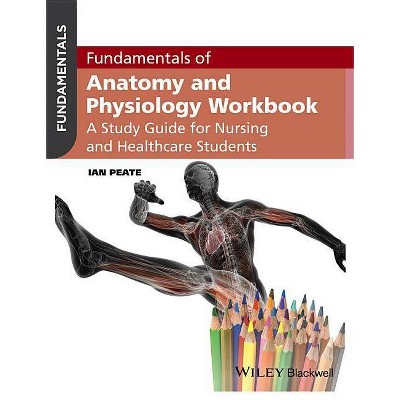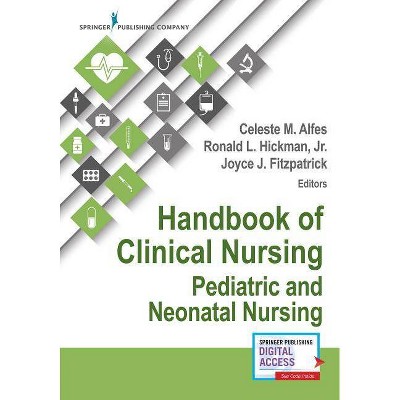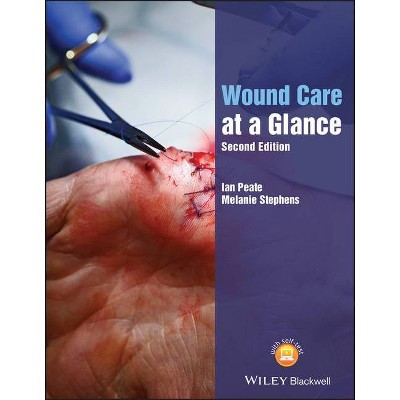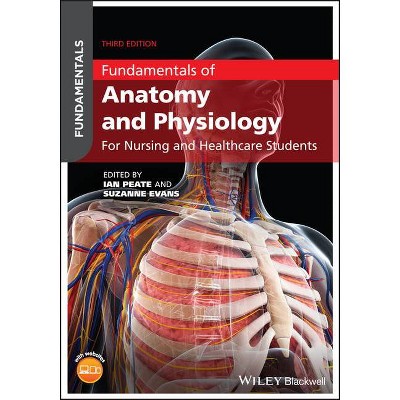The Nursing Associate's Handbook of Clinical Skills - by Ian Peate (Paperback)

Similar Products
Products of same category from the store
AllProduct info
<p/><br></br><p><b> About the Book </b></p></br></br>"Nursing Associates provide safe and effective holistic patient centred care that is underpinned by the 6Cs of caring (DH, 2012). Communication, one of the 6Cs, is a complex yet critical element in all areas of nursing activity. The nursing process, the assessment, diagnosing, planning, implementation and evaluation of care, is only achieved through careful attention to interpersonal relationships, the environment and the specific skills of verbal and non-verbal communication. Nursing Associates are required to communicate with a wide variety of patients across the lifespan including babies, children and young people, carers and families, adults and older people. The Nursing Associate is expected to provide prevention, treatment, rehabilitation and end of life care whilst working in a broad range of settings including at home, close to home and in hospital. The Nursing Associate does not work in isolation and so requires excellent communication skills to work effectively with not just patients, carers but also health and social care colleagues within the multi-disciplinary team. Many of the people the Nursing Associate communicates with will have communication challenges requiring the Nursing Associate to make reasonable adjustments and adapt their style of communication"--<p/><br></br><p><b> Book Synopsis </b></p></br></br><b>The Nursing Associate's Handbook of Clinical Skills</b> <p><i>The Nursing Associate's Handbook of Clinical Skills</i> provides evidence-based guidance for those undertaking the newly developed Nursing Associate (NA) role that bridges the gap between the Health Care Assistant (HCA) and the Registered Nurse (RN). Structured around the latest Nursing and Midwifery Council (NMC) Proficiencies, this invaluable handbook helps the prospective Nursing Associates develop the skills and core competencies required to succeed in a broad range of healthcare contexts--covering more than 90 procedures, and communication and relationship management skills.<p>This timely resource features contributions from a team of experienced clinicians and academics, addressing clinical procedures on topics including skin integrity, nutrition and hydration, mobility and safety, respiratory care, managing infection, administering medicine, and end of life care. Clear, accessible chapters contain a wealth of effective learning tools, including self-assessment tests, review questions, links to electronic resources, supporting evidence, and more. This must-have textbook: <ul><li>Helps trainee Nursing Associates to develop and refine their skills, and demonstrate proficiency in offering care and support</li><li>Reflects current NMC annexes, providing practical guidance on a diverse range of communication skills, strategies and procedures</li><li>Covers the central elements of Nursing Associate care provision, including delivery, monitoring, and reviewing</li><li>Includes colour illustrations, photographs, tables, charts, graphs, and algorithms designed to develop skills and demonstrate the links between theory and practice</li></ul><p>Presenting the principles of care essential for meeting the needs of patients in dynamic health and social care environments, <i>The Nursing Associate's Handbook of Clinical Skills</i> is an indispensable guide for trainee Nursing Associates, as well as for health and social care assistants and those returning to practice.<p/><br></br><p><b> From the Back Cover </b></p></br></br><p><i>The Nursing Associate's Handbook of Clinical Skills</i> provides evidence-based guidance for those undertaking the newly developed Nursing Associate (NA) role that bridges the gap between the Health Care Assistant (HCA) and the Registered Nurse (RN). Structured around the latest Nursing and Midwifery Council (NMC) Proficiencies, this invaluable handbook helps the prospective Nursing Associates develop the skills and core competencies required to succeed in a broad range of healthcare contexts--covering more than 90 procedures, and communication and relationship management skills.</p><p>This timely resource features contributions from a team of experienced clinicians and academics, addressing clinical procedures on topics including skin integrity, nutrition and hydration, mobility and safety, respiratory care, managing infection, administering medicine, and end of life care. Clear, accessible chapters contain a wealth of effective learning tools, including self-assessment tests, review questions, links to electronic resources, supporting evidence, and more. This must-have textbook: </p><ul><li>Helps trainee Nursing Associates to develop and refine their skills, and demonstrate proficiency in offering care and support</li><li>Reflects current NMC annexes, providing practical guidance on a diverse range of communication skills, strategies and procedures</li><li>Covers the central elements of Nursing Associate care provision, including delivery, monitoring, and reviewing</li><li>Includes colour illustrations, photographs, tables, charts, graphs, and algorithms designed to develop skills and demonstrate the links between theory and practice</li></ul><p>Presenting the principles of care essential for meeting the needs of patients in dynamic health and social care environments, <i>The Nursing Associate's Handbook of Clinical Skills</i> is an indispensable guide for trainee Nursing Associates, as well as for health and social care assistants and those returning to practice.</p><p/><br></br><p><b> About the Author </b></p></br></br><p><b>Ian Peate, OBE FRCN</b> is Principal, School of Health Studies, Gibraltar; Visiting Professor of Nursing, St George's University of London and Kingston University London; Visiting Professor, Northumbria University; Visiting Senior Clinical Fellow, University of Hertfordshire, and Editor-in-Chief of the <i>British Journal of Nursing</i>.</p>
Price History
Price Archive shows prices from various stores, lets you see history and find the cheapest. There is no actual sale on the website. For all support, inquiry and suggestion messagescommunication@pricearchive.us
